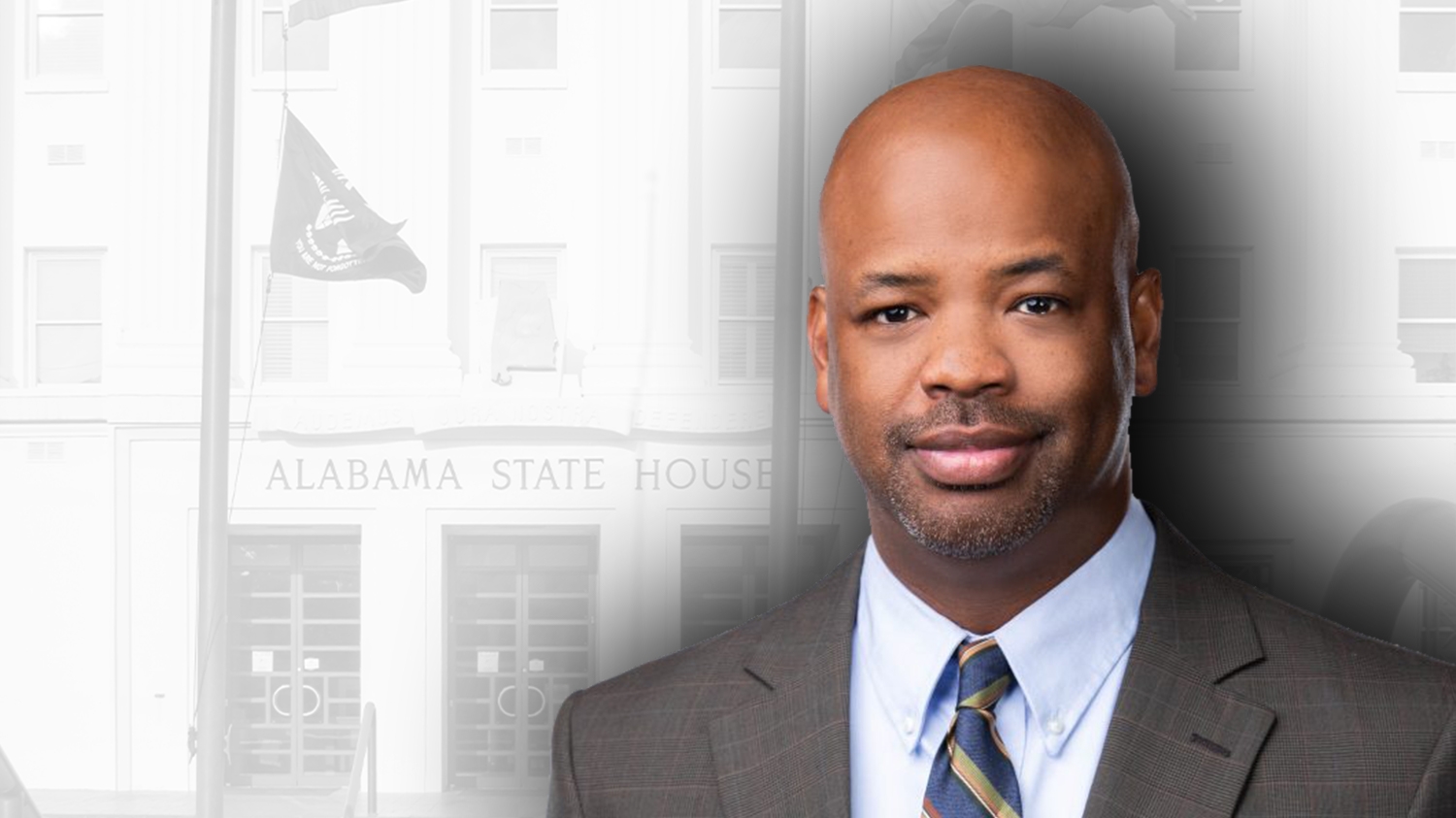Perhaps no other Alabama lawmaker has been more vocal in calling for Alabama Department of Corrections Commissioner Jeff Dunn’s replacement than Rep. Chris England, D-Tuscaloosa.
Alabama’s prisons for men are overcrowded, understaffed death traps, where drugs, corruption and a lack of transparency have resulted in the federal government’s lawsuit that threatens a federal takeover of the state’s prisons.
Speaking to APR on Tuesday, moments after Gov. Kay Ivey’s office announced Dunn would be out at the end of the year and replaced by John Hamm, current deputy secretary of the Alabama Law Enforcement Agency, England described Dunn as a “good man put in a pretty bad situation.”
Dunn, who had no corrections experience prior to being appointed to his position in 2015 by former Gov. Robert Bentley, began his tenure leading a prison system that had for decades been plagued with many of the same problems it faces today.
England said putting someone in that position, in a state he said doesn’t have the political will to do what’s necessary to deal with the crisis at hand, puts them at an “extreme disadvantage.”
“Considering that he really didn’t have a background in corrections, managing a situation where you’ve got a personnel crisis, a crisis of corruption, a humanitarian crisis in the sense that humans living in absolute squalor and despair, with a federal government intervention looming large in the horizon. It’s going to be difficult for anyone,” England said.
England said the change was necessary, however, and that it will provide an opportunity for substantive changes in the Department of Corrections.
Hamm will come with more than 35 years of law enforcement experience, having worked in corrections in both the state and local levels, Ivey’s office said in a statement.
England explained that he’s hopeful that corrections experience will help Hamm make the necessary changes.
“Some history in running a department that really, at this point, needs some leadership and vision that, again, stresses transparency, cleans up some of the corruption and leads the department corrections out of what is quite possibly the worst period in its history,” England said.
Simply changing leadership at the top won’t be enough to solve the systemic problems in Alabama’s prisons, however, England explained. It will take the state legislature’s focus on providing support for rehabilitative programs, substance abuse and mental health care, he said.
“But also making sure that we provide the sentencing structure that puts the people in our facilities that absolutely need to be there, versus the people that we’re just angry at,” England said.
England has championed legislation that would repeal Alabama’s Habitual Felony Offender Act, seen by criminal reform advocates as an outdated mandatory minimum sentencing law that incarcerates far too many people and for too lengthy sentences. England’s bill to repeal the law has failed to garner support from the state’s Republican lawmakers, however.
Despite calls from Democrats and some Republicans for more substantive criminal justice reform measures, to include sentencing reforms, Gov. Kay Ivey placed just two relatively minor sentencing reform bills in her proclamation calling for the special session, set largely to approve a $1.3 billion prison construction package.
One of the two bills, a bill sponsored by Rep. Jim Hill, R-Moody, that would have allowed a small number of incarcerated people to file for re-sentencing under current presumptive sentencing guidelines, faltered after Republican lawmakers pulled support for the legislation.
Asked if he has any hope that lawmakers will tackle substantive sentencing reform measures in the upcoming regular session, which begins Feb 2, England said “no” and that the political will to do what’s needed just isn’t there.
England said the legislature also needs to focus on Alabama’s pardons and paroles crisis.
Alabama’s parole grant rate between 2013 and 2018 increased from 30 percent to 53 percent, but in the following two years, and after the appointment of Pardons and Paroles Board chair Leigh Gwathney in October 2019, the parole grant rate dropped to 20 percent, according to the Alabama Bureau of Pardons and Paroles data.
The largest drop in paroles has happened in Alabama’s minimum-security prisons, where prisoners’ who are deemed the least dangerous to society are held prior to release, according to an Aug. 27 report by the ACLU of Alabama’s Campaign for Smart Justice.
Since 2017, paroles in Alabama’s work centers fell 93 percent and paroles from work releases fell 88 percent, and from the beginning of the COVID-19 pandemic through June, the monthly number of paroles in all of four of the Alabama Department of Corrections security level prisons (close-security, medium-security, work centers and work release) have fallen to a low of five people or less, according to the report.
England has also called for the replacement of Pardons and Paroles Board Chair and former prosecutor Leigh Gwathney. Since November 2019, a month after Gwathney’s appointment, through June 2021, the board granted 25.5 percent of all white applicants’ paroles, or 751 of 2,948 considered, according to board data England shared in a tweet, but granted just 11.9 percent of all Black applicants’ paroles, granting 349 and denying 2,580.
“It’s obvious now that we need both of those elements of the criminal justice system working effectively in order to actually tackle this problem,” England said of corrections and pardons and paroles.
Asked what he would tell incarcerated people and their families who might see Dunn’s departure as a sign that substantive change is on the way, England explained the change is small but critical.
“It’s just a really small component into hopefully taking steps in the right direction to provide that hope out of all that despair in the system,” England said. “And hopefully this will be just one of many steps towards creating a more just, safer and humane system.”
This change isn’t the end, England said.
“It’s the beginning, considering how deeply ingrained these problems are,” he said.






















































